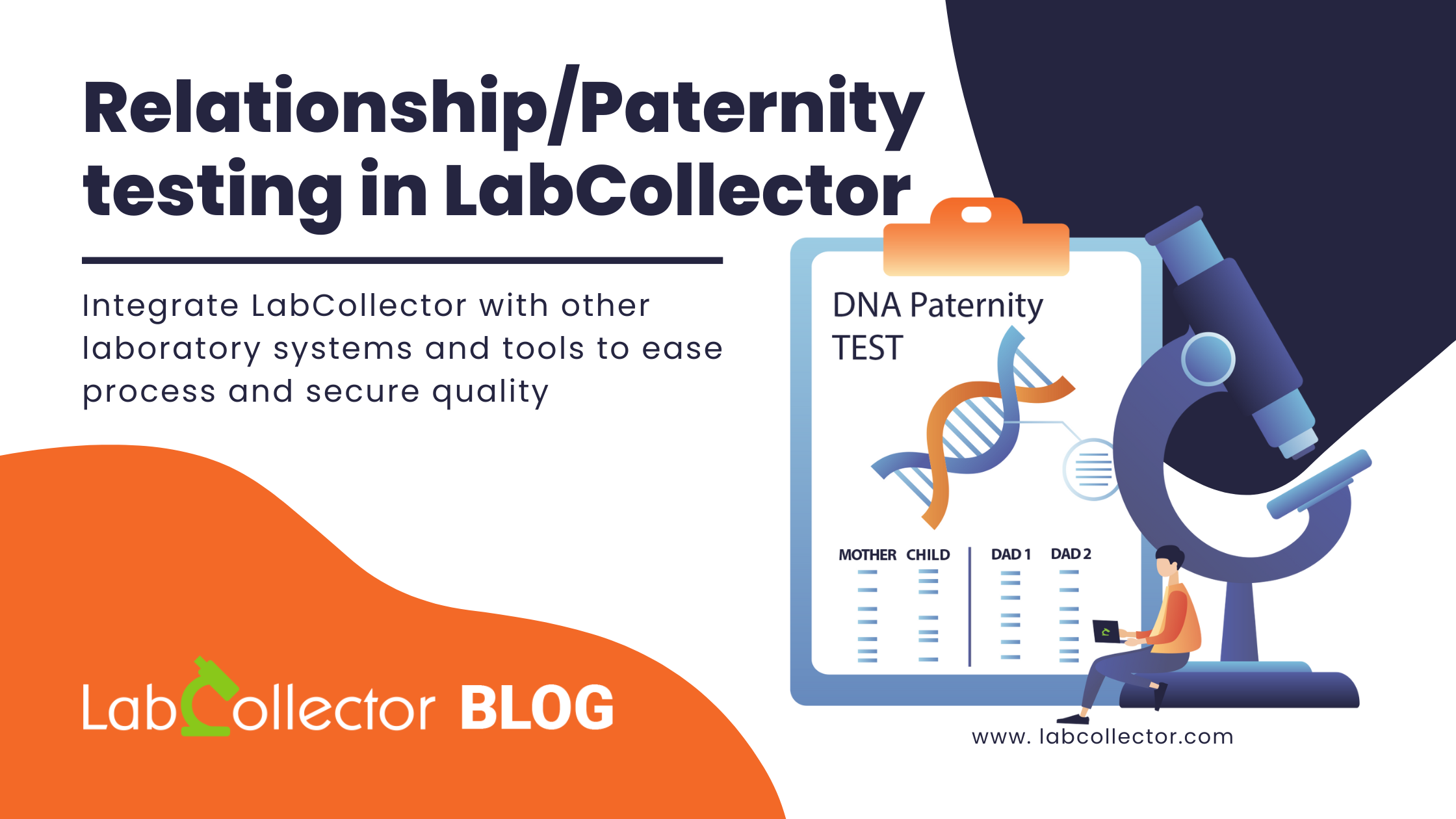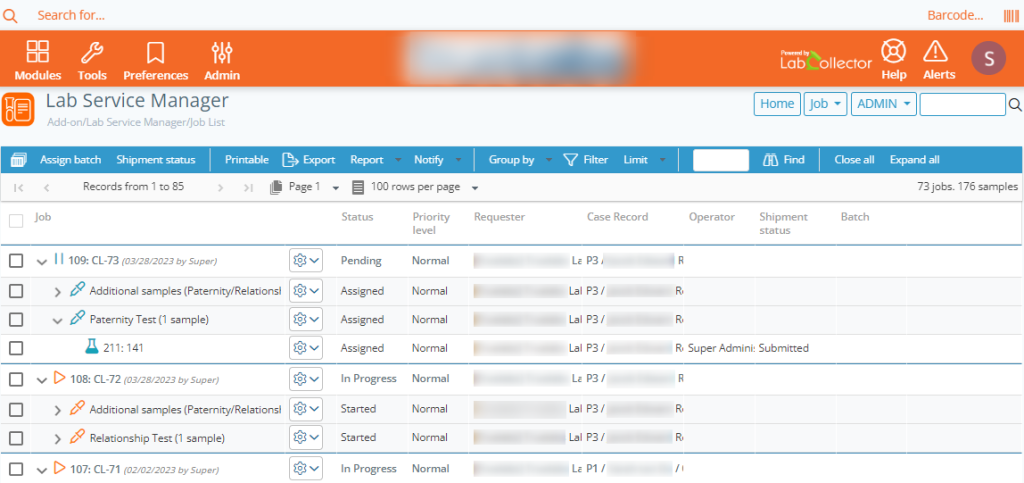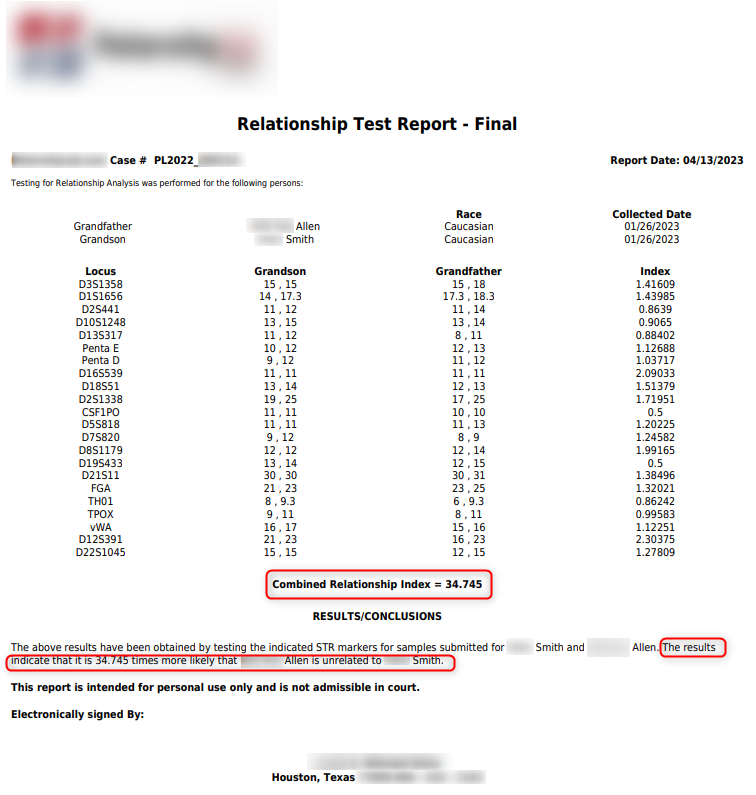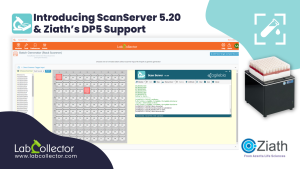LabCollector is a Laboratory Information Management System (LIMS) designed for scientific research labs. It is a web-based software that provides a suite of tools for managing laboratory operations such as sample tracking, inventory management and data management. In addition to its core features, LabCollector also supports a wide range of add-ons and plugins, including tools for relationship and paternity testing.
In this blog, we will show how LabCollector can help your laboratory perform relationship/paternity tests using the right combination of plugins and tools.
LabCollector for Relationship and Paternity testing
Paternity testing is a process of determining the biological relationship between two or more individuals through DNA analysis. This is typically done using a DNA sample from each individual, which is analyzed to identify genetic markers. Therefore they were then used to compare the DNA profiles of the individuals being tested.
To manage the relationship/paternity testing process, LabCollector provides a Lab Service management module. This module allows laboratories to track the status of samples, tests and calculate results throughout the testing process. Furthermore, this feature comes with a user-friendly interface that allows laboratory staff to easily manage and monitor the entire process, from sample collection to final reporting. LabCollector helps ensure accuracy and quality control by tracking each step of the testing process and ensuring that all necessary documentation and data are properly recorded and managed.
Use our Knowledge Base to learn how to perform relationship and paternity testing.
How does relationship/paternity testing work?
Relationship/paternity testing are based on the principles of genetics and the analysis of DNA. DNA is a molecule that contains the genetic instructions for the development and function of all living organisms. The DNA in humans is organized into 23 pairs of chromosomes, with one chromosome from each pair inherited from each parent.
Within the DNA sequence are variations called alleles, which are inherited from each parent and determine an individual’s traits. The analysis of these alleles is the basis for paternity and relationship testing. The most commonly used method for analyzing these alleles is DNA profiling, which analyzes specific regions of the DNA called short tandem repeats (STRs) that contain highly variable alleles.
LabCollector can integrate automated paternity scoring based on alleles and kinship algorithms. The automation comes in the form of an I-Collector plugin.
In paternity testing, the DNA of the child and the alleged father are compared to determine if there is a biological relationship. The analysis of the alleles in short tandem repeats (STRs) can establish the probability of a biological relationship with a high degree of accuracy. The probability is calculated based on the frequency of the alleles in the general population.
Relationship testing can be used to establish various biological relationships, such as maternity, sibling, and grandparentage. The principles of DNA analysis and the comparison of alleles are the same for all types of relationship testing.
The scientific basis of paternity and relationship testing is rooted in the analysis of DNA sequences and the inheritance of alleles from parents. The development of advanced DNA analysis techniques has led to highly accurate and reliable methods for establishing biological relationships, making these tests an invaluable tool in many fields, including forensics, medicine, and immigration.
Benefits of using LabCollector
One of the key benefits of using LabCollector for relationship/paternity testing is its ability to integrate with other laboratory systems and tools. For example, LabCollector can be integrated with DNA sequencing and analysis tools, allowing for a seamless transfer of data between different systems. Moreover, this integration helps to reduce errors and improve the overall efficiency of the testing process.
Another benefit of using LabCollector for relationship/paternity testing is its ability to store and manage large amounts of data. Indeed, the system provides tools for managing and analyzing complex datasets, allowing laboratories to quickly and accurately identify potential matches or related individuals.
LabCollector’s sample tracking module allows laboratories to easily manage the receipt, storage, and tracking of DNA samples. The module provides a barcode system that can be used to label samples and link them to specific individuals, making it easy to track each sample throughout the testing process.
In addition to sample tracking, LabCollector’s data management module provides tools for managing and storing DNA profile data. The system can store and manage large amounts of data, allowing laboratories to identify potential matches or related individuals quickly and accurately.
Report
To facilitate the analysis of DNA samples, LabCollector can be integrated with a range of DNA sequencing and analysis tools. This integration allows laboratories to seamlessly transfer data between different systems, reducing errors and improving the efficiency of the testing process.
Here is an example of the report that LabCollector provides at the final step of the analysis. Data comes from laboratory software and LabCollector performs calculations needed to determine paternity and relationship level between DNA samples tested.
Use our Knowledge Base to learn how to perform relationship and paternity testing.
Conclusion
Overall, LabCollector is an ideal tool for laboratories that perform relationship/paternity testing. Its suite of features and integrations make it an efficient and effective solution for managing the entire testing process, from sample tracking to data analysis and reporting. By using LabCollector, laboratories can ensure accuracy, efficiency, and quality control in their relationship/paternity testing operations.
Interested in a setup to automate and streamline your relationship/paternity testing lab? Contact us to know more!







